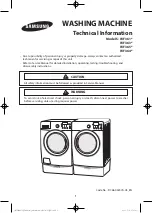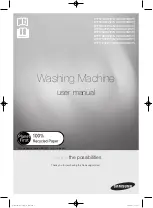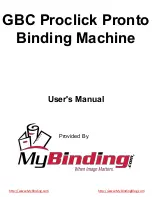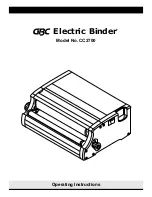
Coffeemar
G-250
//
Coffee
MNP116M01GBV00
Date: 09/04/2013 Rev. 1
PAGE 85 OF 95
Water softener
Many waters contain dissolved minerals that make them hard (calcium or magnesium).
These minerals build up scale deposits. For the coffee machine to work properly, as well
as to make maintenance operations easier, it is necessary to use water with a low
content of scale. Otherwise, the scale accumulates on the various machine components
and may obstruct conduits and deteriorate parts or render them ineffective. If you cannot
connect the machine to a soft water supply, a water softener will eliminate hard water
problems by exchanging calcium and magnesium ions with sodium ions, thanks to the
resins of the water softener filter. It is advisable to use a water softener filter for water
with a hardness level above 20 °f. The
Jofemar
coffee machines can be fitted with an
optional ion exchange resin filter water softener. These filters are based on the capability
of the resins inside the water softener bottle to exchange sodium (Na) ions with calcium
and magnesium ions in the water. With use, the resins become saturated with scale ions
and need to be regenerated. This is achieved by putting common (kitchen) salt in the
water softener bottle and passing water through the resin, so the salt’s sodium is trapped
in the resin and the calcium and magnesium ions are discharged. How long a filter will
last before it needs to be regenerated depends on the water’s hardness. The number of
approximate servings (which depends on how much water is needed for each product)
that these filters can handle are:
WATER HARDNESS (°f)
No. OF SERVINGS
20 °f
18.000
30
°f
10.000
40
°f
8.500
Fig. 56
Flavour filter
VERY IMPORTANT:
This kit should be installed outside the machine, before the
inlet solenoid valve. No couplings or connectors are included for the solenoid valve.
This type of filter is meant to provide optimal quality water for hot drink dispensing
machines.











































